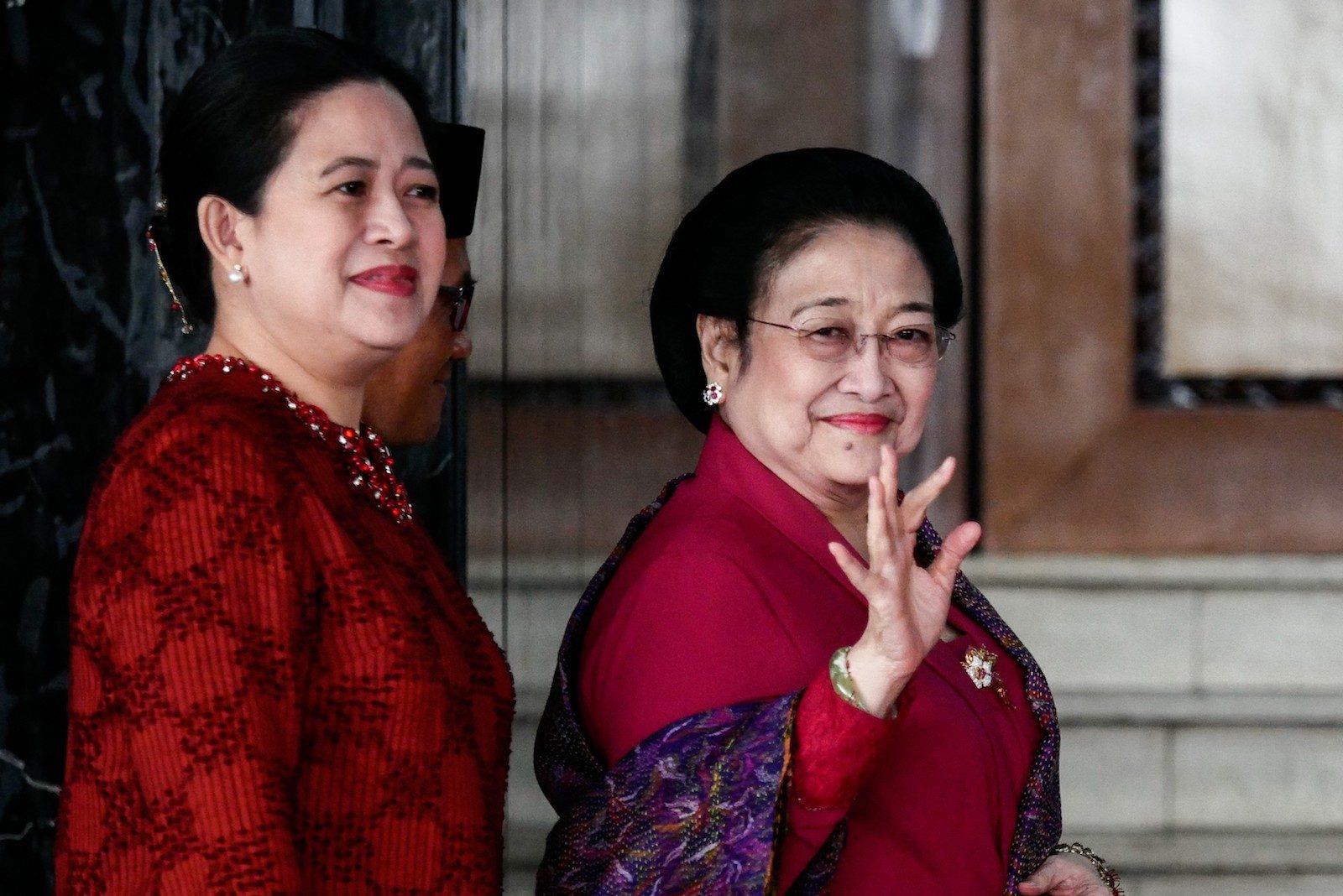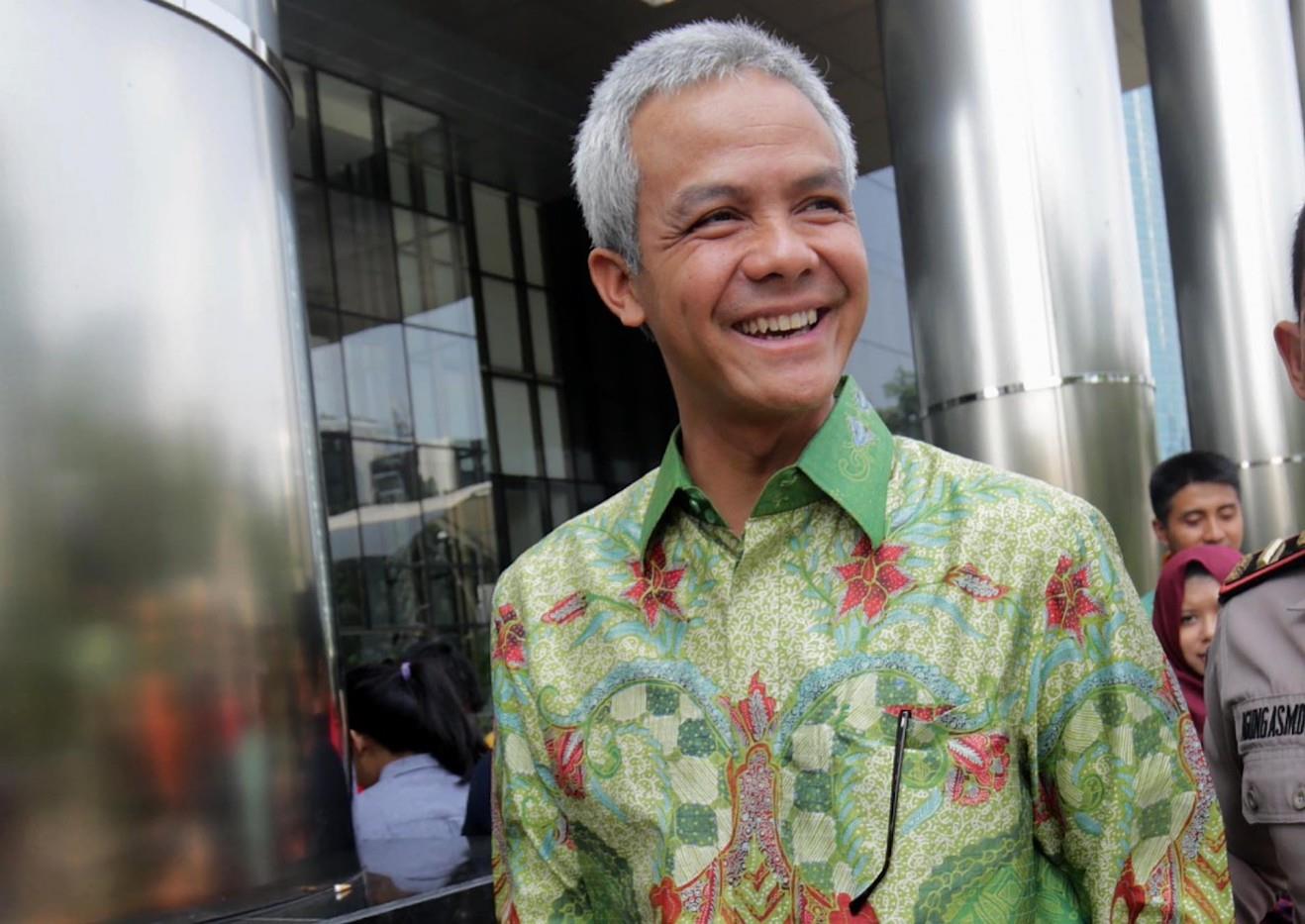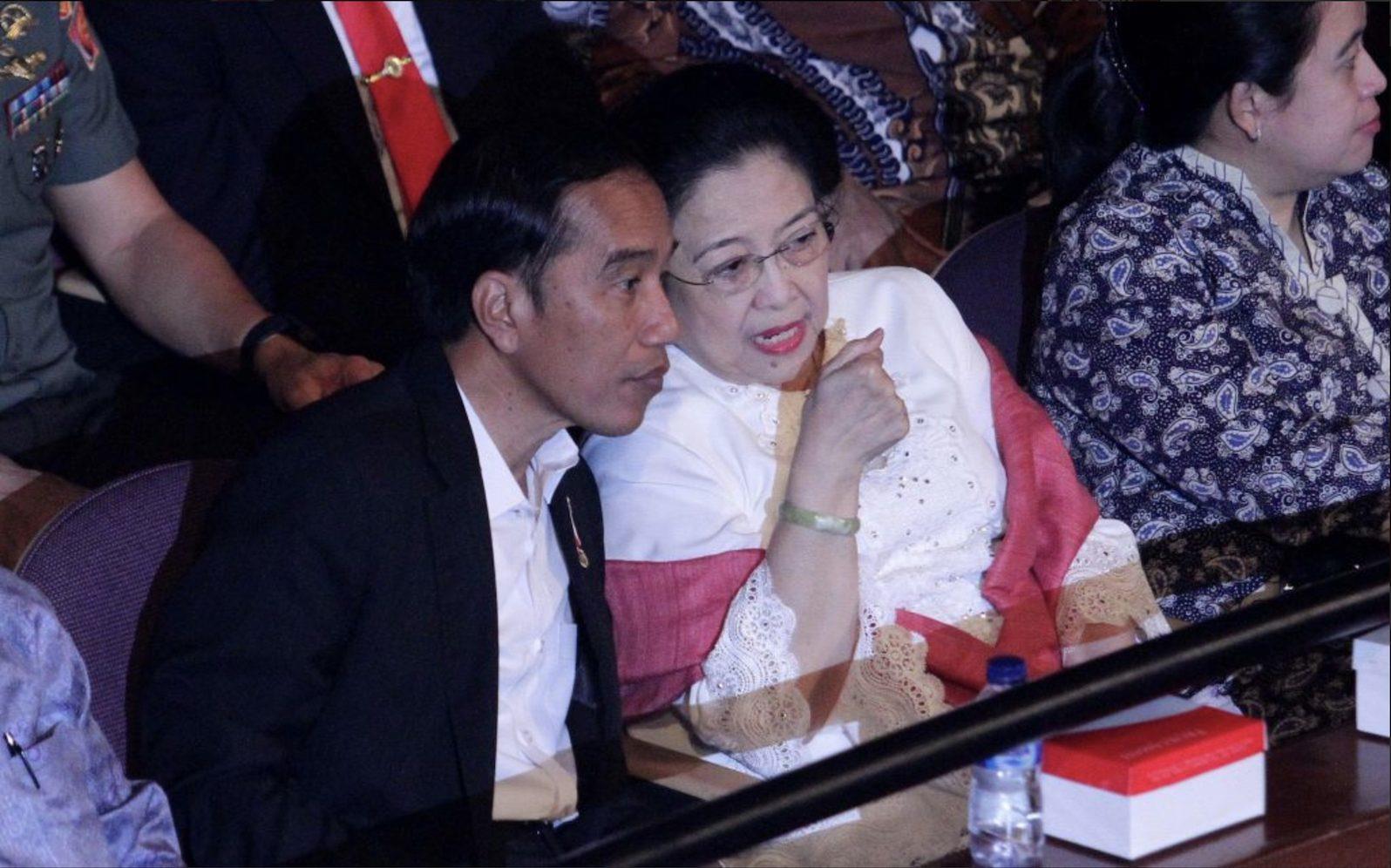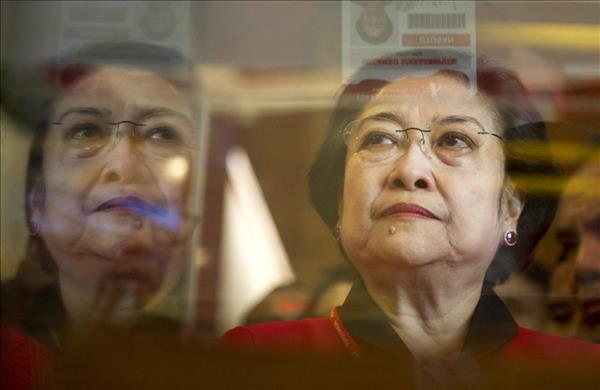(MENAFN- Asia Times) JAKARTA – As the supreme leader of the ruling Indonesian Democratic Party for Struggle (PDI-P), Megawati Sukarnoputri delights in the stranglehold she has over the country's largest party and the pivotal role she has in choosing what may well be the country's next president.
All that was on full display last week as Megawati sat alone at a wall-to-wall table, the PDI-P's glowering red bull logo towering above her, to address the 50th anniversary of a party rooted in the nationalist ideology of her father, national founding president Sukarno.
The media had been told to expect a big surprise, taking that to mean she would be announcing her choice of the party's presidential candidate in 2024 – either her daughter and heir apparent, Parliament Speaker Puan Maharani, 49, or popular Central Java Governor Ganjar Pranowo, 54.
But that time never came. Putting away her rhetorical toys, Megawati punched the air, shouted“merdeka (independence), merdeka, merdeka” and left the stage. She would not be revealing her preference, she told thousands of red-shirted party cadre, because it was“my business” – and now was not the right moment.
Still, President Joko Widodo says Megawati has already made her choice, something he acknowledged she had not done at the time of their well-publicized meeting in Bogor last October. Signals since then suggest Pranowo may be back in favor.
Coalitions holding at least 20% of parliamentary seats have until November 25 to formally register a candidate with the General Elections Commission (KPU) – leaving just two months of campaigning before the February 14, 2024, presidential and general elections.
It is only PDI-P, with 128 seats in the House of Representatives (DPR), that can nominate a candidate on its own, though the way politics have evolved in Indonesia most parties end up clamoring to join the government once the election dust has settled.
The tone of the 75-year-old Megawati's two-and-a-half-hour televised speech – arrogant, boastful, even bullying one moment, reflective and streaked with obvious insecurity the next – was stunning to many Indonesians who sat through it.
Where she did score points with pro-democracy activists was her rejection of an extension to Widodo's second term and the postponement of the elections, an issue his army of supporters continues to foment from behind the scenes.

Megawati Sukarnoputri (R) and her daughter House of Representatives Speaker Puan Maharani (L) are trying to keep the Sukarno family atop Indonesian politics. Photo: Anton Raharjo / Anadolu Agency
Reflecting on what happened to her father, who ruled without term limits from 1945 until he was deposed in 1967, Megawati asked:“Is this what you want, to go on and on. Do you want it to be like a continuous trial?”
Interestingly, while Widodo currently enjoys a positive poll rating of 71.3%, buoyed by the success of last November's G20 summit meeting in Bali, previous polls have shown a similar number of respondents want him to step down as scheduled and legally required after his second term.
“Megawati's position gives us hope there is still a party leader who prioritizes more important issues than power, even if it is just words,” Tempo said in an editorial.“One of the criteria of democracy is the limitation of power through the holding of elections that are fair and honest.”
Local media outlet Tempo wasn't so generous on other matters.“Megawati's speech increasingly shows her megalomaniacal side,” it said.“Her stress on the fact that only she holds the right to determine the presidential candidate buries her stated support for democracy.”
Only recently, PDI-P found itself on the wrong side of history in pushing for a return to the old closed-list proportional system for the next legislative elections under which the party and not the voters select the successful lawmakers.
The other eight parties all opposed the move, but the Constitutional Court has yet to rule on a petition filed by a PDI-P member to scrap the current open-list system, a move that would give Megawati even more power over the party.
It would also provide the government with an excuse to delay the elections, something she says she doesn't want.
As it was, her speech left many other unanswered questions, but one stood out: after asking the party faithful whether she was too old and getting a raucously dissenting response, she spoke at length on the continuing inequality between men and women, a subject she has often dwelled on before.
In particular, she noted the number of women in the legislature and executive was still well short of the generally accepted representation level of 30%; the KPU bravely says it intends to make that a registration requirement for parties contesting the 2024 election.
Did all this indicate Megawati had settled on Maharani as the party flag-bearer, political commentators wondered? Or could she possibly be thinking of running herself for a third time, a possibility no one has given a thought to so far because it simply seems inconceivable?
She recalled someone asking her what kind of future leader she was looking for.“Oh,” I said,“don't you see me. I'm right here. Don't you know that your Ibu (Megawati) is smart, beautiful, charismatic, a fighter. What else do you need,” she said.
Analysts also read a lot into the fact that Maharani was sitting among the VIPs in the front row of the cavernous hall, while the governor of Indonesia's second most populous province was shunted to an anonymous seat at the back.

Popular Central Java Governor Ganjar Pranowo may or may not get PDI-P's presidential nomination. Image: Facebook
But that is vintage Megawati. As with Widodo himself, who has learned the art of the forced smile, the matriarch never misses a chance to remind the president and other political leaders that the party is paramount and she, and she alone, is in charge.
At one point, she claimed she had“made” Widodo, who was seated directly in front of her, ignoring the fact that despite being a PDI-P functionary it was the former town mayor's own star power that won him the presidency in 2014 and again in 2019.
“It isn't the first time, but anyone seeing the way she treated Jokowi (Widodo) must have been appalled,” said one seasoned Indonesian politician.“She talks as if he is nothing without PDI-P.”
Pranowo is a long-time party member, a two-term legislator and loyal to Megawati. But he also tops all the popularity polls, while Maharani languishes near the bottom. It was the same back in 2013 when Widodo led Megawati in one poll by 58.3% to 7.1%.
“I think, deep down, she wants Puan to run, but she knows that the reality is she wouldn't win,” said the politician, who believes the coalition supporting surging opposition candidate Anies Baswedan may come together as early as March.
Maharani and her half-brother, Guntur Soekarnoputra, 78, sought to take the edge off some of the speculation by later saying a member of the Sukarno family didn't need to get the nomination.
It must still rankle Megawati that she has never won an election. PDI-P topped the first democratic election by a wide margin in 1999, but she lost to the crafty Abdurrahman Wahid in the subsequent presidential election in the People's Consultative Assembly (MPR).
Although she replaced Wahid when he was removed from office in July 2001, she was beaten by her former chief security minister, Susilo Bambang Yudhoyono, in the first direct presidential election in 2004 – a defeat she has always blamed on Yudhoyono's alleged betrayal.
In 2009, Yudhoyono won again, this time by a landslide, seizing almost two-thirds of the vote. Five years later, Widodo's popularity left her little choice but to step aside – though she waited until the last minute to do it, allowing rival candidate Prabowo Subianto an early edge.
Through it all, she has remained PDI-P's chairperson, her hold on the party unchallenged, her coronation assured. But making the wrong choice may test that, certainly among younger PDI-P politicians who will rely on the popularity of the presidential candidate to win seats in the legislature.
Worrying for many PDI-P supporters, waiting patiently to hear what under any other circumstances would be a no-brainer decision, must be how divorced from reality the matriarch often appears to be.

Indonesian President Joko Widodo (L) and PDI-P leader Megawati Sukarnoputri (R) in a file photo. Photo: Facebook
One of her more extraordinary statements last week was her claim that stunting among Indonesian infants, put as high as 25% by Health Minister Budi Sadikan, was the result of mothers fussing over their makeup instead of cooking.
Not so, say health experts. They blame the affliction on structural poverty, with 10% of Indonesians living beneath the official poverty line, general ignorance about nutritious food and limited access to health services across the vast archipelago.
At the party's national meeting last June, in what was seen as a window on the Jakarta elite's classist and racist views, she created a similar stir by jokingly saying that she had warned her children not to bring home a meatball seller as a prospective partner.
The country's meatball sellers, the sort of voter PDI-P aspires to attract, were likely not amused.





















Comments
No comment